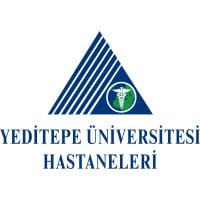
Yeditepe University Hospital
Университет Едитепе был основан фондом ISTEK в 1996 году. 1. Стоматологическая клиника Университета Йедитепе, 1996 г. 2. Больница Козьятаги Университета Едитепе в 2005 г. 3. Поликлиника Багдат Каддеси Университета Едитепе, 2006 г. 4. Глазной центр Университета Йедитепе, 2007 г. 5. Центр генетической диагностики Университета Едитепе, 2008 г. Кроме того, в 2008 году был введен в эксплуатацию 6-й Центр комплементарной медицины Университета Едитепе, в 2013 году — 7-я Лаборатория типирования тканей Университета Едитепе, а в 2017 году — 8-я больница Кошуйолу Университета Едитепе. Университетские больницы Едитепе используют свой научный потенциал во всех областях, включая трансплантацию костного мозга у взрослых, трансплантацию костного мозга у детей, трансплантацию почки, кардиологию, сердечно-сосудистую хирургию, урологию, онкологическую хирургию, ортопедию, женское здоровье, ЭКО, лабораторию генетической диагностики высокого уровня. передавать. Университетская больница Йедитепе была аккредитована Объединенной международной комиссией в 2007 году, а «Первая группа университетских больниц Турции», которая задокументировала свое качество и успех на международном уровне, была аккредитована как «Больница учебного и исследовательского центра» в 2014 году и стала первой медицинской Медицинский центр Факультетская больница для получения этого сертификата. В то время как университетская больница Йедитепе лечит своих пациентов под своей крышей, имея привилегию быть университетской больницей, она подготовила успешных врачей и продолжает расти. Университетские больницы Йедитепе, рожденные с наукой в своих генах, продолжают служить, черпая свою силу из науки.1996






